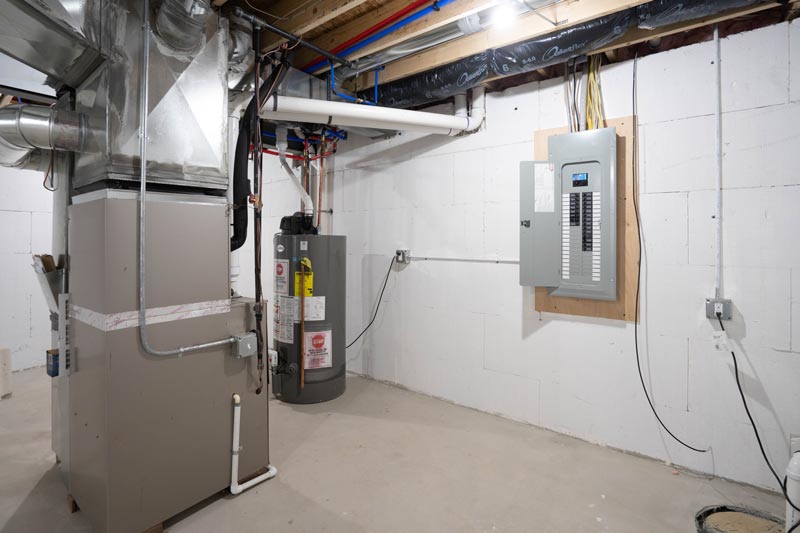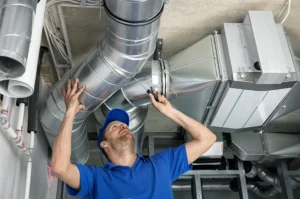When it comes to investing in a new HVAC system in your Idaho home, one of the factors that often gets overlooked is the warranty.
An HVAC warranty is your safety net for your system, offering protection and peace of mind against unexpected repairs or malfunctions. But what exactly is the average length of an HVAC warranty, and what does it entail for homeowners? Let’s delve into this crucial aspect of HVAC systems to understand its implications better.
Understanding HVAC Warranties:
HVAC warranties typically come in two parts: the manufacturer’s warranty and the installer’s warranty. The manufacturer’s warranty covers defects in materials and workmanship, while the installer’s warranty covers the installation process. However, for the purpose of this article, we’ll focus primarily on the manufacturer’s warranty—the aspect that varies widely across different HVAC systems.
Average Length of HVAC Warranties:
The average length of an HVAC warranty can vary significantly depending on several factors, including the type of system, the brand, and even the specific model. However, a typical HVAC warranty can range anywhere from 5 to 10 years for parts, with some high-end systems offering warranties of up to 12 or even 15 years.
Factors Influencing Warranty Length:
1. System Type: The type of HVAC system you choose can impact the warranty length. For instance, central air conditioning systems and heat pumps often come with longer warranties compared to individual units like window air conditioners or portable heaters.
2. Brand Reputation: Established brands with a history of reliability tend to offer longer warranties to instill confidence in their customers. Conversely, lesser-known brands might offer shorter warranties as they lack the track record to support extended coverage.
3. System Efficiency: Energy-efficient HVAC systems, such as those with higher SEER (Seasonal Energy Efficiency Ratio) ratings, often come with longer warranties. Manufacturers are confident in the durability of these systems and thus provide extended coverage.
4. Upgraded Components: Some manufacturers offer extended warranties for specific components, such as compressors or heat exchangers, as a way to differentiate their products in the market. These upgraded warranties can add extra years of coverage beyond the standard warranty period.
Implications for Homeowners:
Understanding the average length of an HVAC warranty is crucial for homeowners for several reasons:
1. Financial Protection: A longer warranty provides financial protection against unexpected repair costs during the covered period. This can save homeowners significant amounts of money, especially if a major component fails.
2. Quality Assurance: Manufacturers who offer longer warranties are often more confident in the quality and durability of their products. Therefore, opting for a system with a longer warranty can provide assurance of reliability and performance.
3. Peace of Mind: Knowing that your HVAC system is covered under warranty offers peace of mind. You can rest assured that if something goes wrong, you won’t be left to deal with costly repairs on your own.
Tips for Maximizing Warranty Benefits:
To make the most of your HVAC warranty, consider the following tips:
1. Register Your Warranty: Many manufacturers require you to register your HVAC system within a certain timeframe to activate the warranty. Failing to do so could void your coverage, so be sure to complete this step promptly.
2. Schedule Regular Maintenance: Most warranties require proof of regular maintenance to remain valid. Schedule annual maintenance checks with a qualified HVAC technician to keep your system in top condition and preserve your warranty coverage.
3. Keep Records: Maintain records of all maintenance and repairs performed on your HVAC system. In the event of a warranty claim, these records can serve as evidence of proper care and maintenance, increasing the likelihood of approval.
To wrap things up, the average length of an HVAC warranty can vary depending on several factors, including the type of system, brand reputation, and efficiency rating. Understanding the implications of warranty length is essential for homeowners looking to invest in a new HVAC system. By choosing a system with a longer warranty and following best practices for warranty maintenance, homeowners can enjoy financial protection, quality assurance, and peace of mind for years to come.




